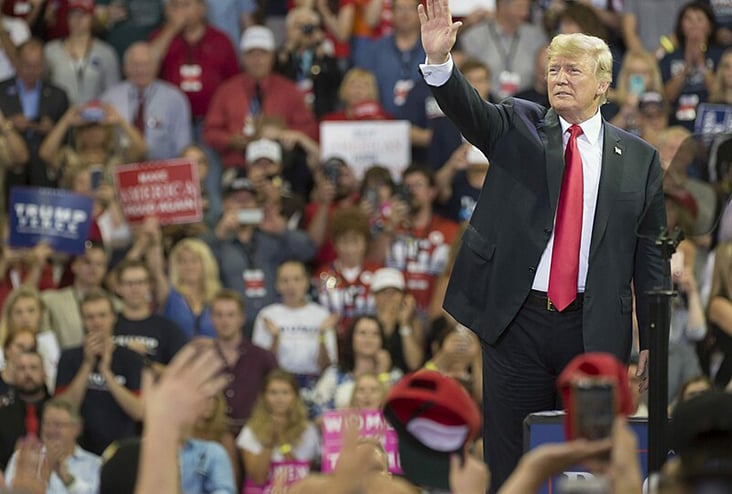One of the largest political rallies ever held in the state of New Jersey took place in Wildwood on Saturday. Between 80,000 and 100,000 people are reported to have shown up for Donald Trump’s rally. Whatever one may think of Donald Trump, the sky-high attendance at his rally in this blue state enclave is a sure sign that average Americans are fed up with the Biden administration and with the Beltway Bolsheviks who advise and support him.
A week earlier, while attending a family reunion, two of my nephews—one in his mid-thirties, the other just over 40—stunned me with their vehement rejections of the Pro-Palestinian campus upheavals. Until then, I had assumed that they leaned to the political left. Perhaps they do, but what gladdened my heart was that both men possess the intellectual equipment necessary to take a hard look at a certain cause or situation, weigh what they see and hear, and change their minds.
Both the rally and my conversations with my nephews raised some questions. Corporate media, along with many of our so-called elites in academia and the culture, often brand supporters of Donald Trump and the political right generally as either Nazis or deluded populists and reactionaries, a “basket of deplorables” who will destroy American democracy if given the chance. But what if a greater force is in play with these voters? Putting aside all the loaded and often misleading political labels of our day—progressive, liberal, conservative—is it possible that voters are really just looking for some old-fashioned sound judgment from their leaders?
In his slim 2019 book, Reclaiming Common Sense: Finding Truth in a Post-Truth World, Robert Curry begins by pointing out that today’s “war on moral common sense has reached new heights of absurdity” and that “political correctness is quite simply a war on common sense.” To make his case, he gives a few examples, such as the insistence by academic elites and government officials that gender identity trumps biological reality. Most of us could easily cite other irrational theories and doctrines so prevalent these days, like the climate change agenda. The government which can’t manage a budget or forge a coherent foreign policy is going to take charge of the global climate? Common sense dictates otherwise.
Curry writes that throughout most of the 19th century “the philosophy that young Americans learned in college was common-sense realism, a philosophy that was ‘virtually the official creed of the American Republic,’ in the words of the great American historian Arthur Herman.” According to Herman, “the power of common judgment belongs to everyone, rich or poor, educated or uneducated; indeed, we exercise it every day in hundreds of ways.” Some things, Herman adds, “like the existence of the real world and basic moral truths,” don’t require proof of their validity or existence. “These things are … self-evident, meaning they are ‘no sooner understood than they are believed’ because they ‘carry the light of truth itself.’”
As Curry demonstrates the war against this American credo and practice of common sense realism goes back to the 19th century, to movements like Romanticism and Marxism. Today, however, these attacks have grown more vicious as they have become an open, “war by the elites on the common people.” One of their primary weapons is the movement away from what Curry calls “linguistic realism,” in which the meanings of words are twisted and transformed, so they can then be used as cudgels against those of us they prefer to consider backward and ignorant. An objection to some current intellectual fad becomes “hate speech,” “diversity” often means no whites or Asians need apply, “equity of outcomes” replaces “equality of opportunity,” and so on.
A large majority of Americans, I suspect, look on these and other aspects of woke philosophies with a disbelief tinctured with ridicule. Common sense tells them that spending more than they take in will sooner or later end in disaster. Common sense and nature tell them that the baby born with XY chromosomes is male. Common sense dictates that they should judge human beings by their talents and virtues, not by the color of their skin. Common sense proclaims the family and not the state as the cornerstone of a free society.
Common sense is what tells most of us that 2+2=4, that rain will wet us and fire will burn, and that—as P.J. O’Rourke once wrote—“giving money and power to government is like giving whiskey and car keys to teenage boys.”
The real battle being fought in America today is not between the right and the left. It is a battle between common sense and nonsense. And if that whopping big crowd at the Wildwood rally is any indication, the common-sense crew is making its voice heard loud and clear.

Leave a Reply